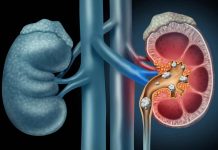
Research Reveals the Surprising Factor That Could Lengthen Your Lifespan
Your attitude affects your happiness, your relationships, and even your chances for a promotion, but can it affect your lifespan? New research says it does. People who are happy and optimistic regardless of what life throws at them live, on average, 11% to 15% longer than their less-than-optimistic counterparts.
But why? Let’s delve a bit deeper.
Optimistic People Live Longer
A study published in the Proceedings of the National Academy of Sciences of the United States of America (PNAS) showed that optimistic people live longer than pessimistic people regardless of their health behaviors, socioeconomic status, and social integration. This means that an optimistic person who smokes is less likely to suffer from chronic disease or premature death than a smoker who views life from a pessimistic lens.
But how could that be? Both optimism and pessimism affect physical health, mental health, and general wellness in many ways.
Optimism Wards off Disease
According to Harvard Health Publishing, optimism improves health in a multitude of ways. Optimism helps heart patients endure surgeries, recover faster and avoid repeat cardiac episodes. What’s more, optimistic heart patients are 55% less likely to die from cardiovascular disease.
Optimism lowers blood pressure, helps the body fight off infection, dispels depression, and provides better cancer outcomes. All in all, a 10-point increase in pessimism resulted in an increased mortality rate of 19%. And that’s not all. Pessimistic people are generally miserable when facing an illness, which can have a detrimental effect on their psyche and relationships.
Optimism Motivates Good Health
Another reason a positive attitude promotes overall well-being? Optimistic people are more likely to take care of themselves, too. Psychology Today reports that optimistic people are less likely to engage in unhealthy behaviors, such as smoking and drinking alcohol. Optimistic people sleep better, exercise more, and make healthier food choices.
Additionally, optimistic people are more likely to follow doctors’ orders and do whatever it takes to heal from an illness. They do not rest on their laurels, feeling sorry for themselves. And this may explain why they heal faster and have better outcomes than those who look at their circumstances negatively.
It’s true that people with good attitudes live longer. But what can you do if your attitude isn’t always so great? You can train your brain to be more optimistic. Looking on the bright side, journaling and cultivating gratitude can help you become a more optimistic person.
~Here’s to Your Healthy Ascension!
Copyright 2024, AscendHealthy.com




















